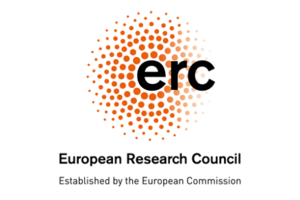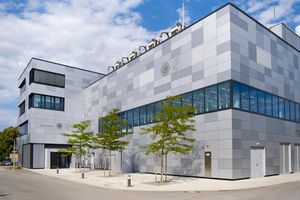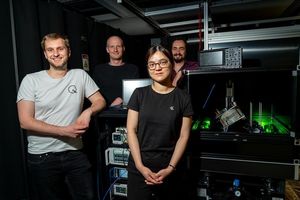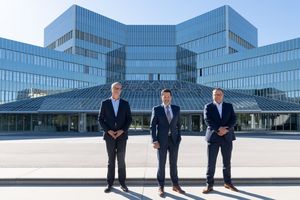
News
MQV to receive the 2026 Technology Transfer Award of the German Physical Society
Munich Quantum Valley (MQV), the TUM School of Natural Sciences at the Technical University of Munich (TUM-NAT), and the Munich-based startup QuantumDiamonds will receive the prize for their pioneering development of innovative quantum sensors for fault analysis and measurement technology in the semiconductor industry.
MQV institutes and start-ups play key role in EU’s first pilot line for superconducting quantum chips
The European Union has approved SUPREME, a major new pilot line to industrialize superconducting quantum chip fabrication, coordinated by VTT and funded through the EU Chips Joint Undertaking. As part of this initiative involving 23 partners across eight EU member states, one of the three central fabrication sites will be hosted in Germany, specifically in Garching and the Munich area, supported by a strong consortium of German research institutions and technology developers.
ERC Consolidator Grants for Michael Knap and Andreas Reiserer
MQV members Michael Knap and Andreas Reiserer, both professors at the Technical University of Munich (TUM), have been awarded the prestigious Consolidator Grants of the European Research Council (ERC).
Max Planck Semiconductor Laboratory opens new building in Garching
On 7 October, a new building of the Max Planck Society's Semiconductor Laboratory (HLL) was opened on the Garching research campus. The state-of-the-art infrastructure plays a central role in the new cooperation between the HLL, the Technical University of Munich and the Walther Meißner Institute for the joint development of superconducting quantum bits, which was agreed as part of Munich Quantum Valley.
Quantum sensor technology for cancer monitoring wins Medical Valley Award
As part of the 'Munich Quantum Valley' Lighthouse Project IQ-Sense, researchers at the Technical University of Munich have developed a new method for the optical detection of MRI signals using diamond-based quantum sensors. In collaboration with the Hospital of the Ludwig-Maximilians-Universität München, the researchers now want to make their method applicable for clinical use in the field of cancer monitoring, for which they have received the Medical Valley Award.
BMW supports new TUM endowed chair with 5.1 million euros
The BMW Group will support future research on quantum computers at the Technical University of Munich (TUM). The contract establishing the endowed chair for Quantum Algorithms and Applications ("Quantenalgorithmen und -anwendungen") was signed by TUM president Thomas F. Hofmann, BMW AG Board of Management member Frank Weber and BMW AG CIO Alexander Buresch.





